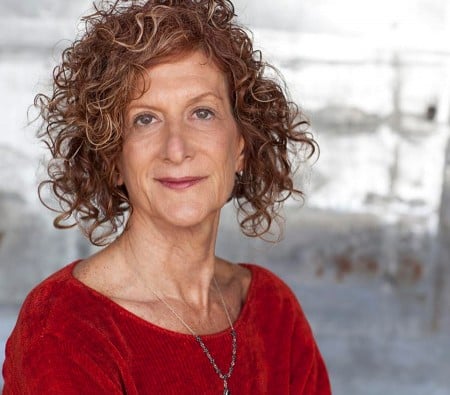Mentor News
A film industry veteran, Jana Sue Memel is a producer, writer and director with a long list of film credits, including “So I Married an Axe Murderer” and “Going to the Mat,” among others. Her love for film dates back to her childhood, when as she recalls, she called up Twentieth Century Fox at the tender age of five and offered her services. Jana’s years of experience have garnered her 11 Oscar nominations and three Oscar wins.
As a screenwriting mentor for the Film Connection, Jana’s practical and creative approach to mentoring students is to help them “write a script that might actually get made.” In a recent conversation with us, Jana naturally had some great words of wisdom for up-and-coming filmmakers and screenwriters. We share the best excerpts with you below.
* * * * *
HER APPROACH TO TEACHING SCREENWRITING:

Film writer/producer Jana Sue Memel
“What’s unique about me is that I make movies and TV, and I write, I produce, I direct…I have started the careers of over 60 first-time directors…So my perspective on filmmaking comes from having done all of the jobs…and I certainly have spent enough time with actors, and how an actor looks at a script. And then I know how an audience looks at a script obviously. But I also know how a director looks at a script. And so I try and teach screenwriting from the perspective of how do you write a script that might actually get made…
“I believe a film is a hero’s journey. I believe that, at the end of act one, everything is set in motion. And at the end of act two, everything has gone to sh*t. I believe that you have to overcome obstacles. But what I don’t believe is that you sit there and think about a lot of that when you’re beginning to create your story. And I think that so many people who teach screenwriting are into teaching those things instead of asking questions about what’s happening to people. So I like to teach or mentor screenwriting from the perspective of…What is that journey, and who can connect with it, and how do you make it authentic and real?”
ON WHAT SHE LOOKS FOR IN THE PEOPLE SHE MENTORS:
“I’m not interested in people who from hour “x” to hour “y”… filmmaking is a 20-hour-a-day job. Money is the last thing you should be thinking about, which [means] I don’t think you shouldn’t get paid for your work. But as somebody breaking into the film business, if you’re thinking about how much you’re getting paid an hour and you want overtime and all that, you’re in the wrong business, because I can replace you in two minutes with somebody who listens.”
ON WHY SHE TEACHES FOR THE FILM CONNECTION:
“I think that the really great thing about this program… I don’t believe that, in many ways, you can teach most things in filmmaking; “teach” meaning from a pedantic point of what teaching has traditionally been envisioned as. I think a large part of how you learn filmmaking is experiential and observational. And that’s what I’m doing with the people I work with in Film Connection. I say, ‘Look, if you want to read a book, you can read a book and I’ll tell you what books I like. Otherwise we’re going to work on scripts from how I work on a script, and you and I will go on a journey together that I go on when I’m writing my own stuff.’”
ON HER LOVE FOR THE CRAFT:
“I love filmmaking. There is nothing more exciting on the planet Earth than making movies. You get to take something from inside your head to sitting in the back of the room watching other people enjoy it. As a producer, your entire job all the time is creatively solving problems. It’s making things happen. It’s facing a challenge and resolving it. It’s pushing yourself past a limit you thought you couldn’t get past.”
* * * * *




